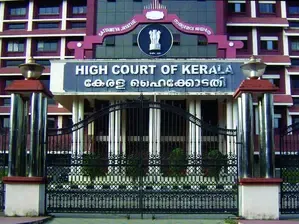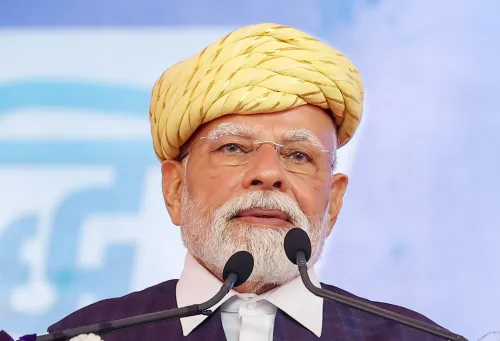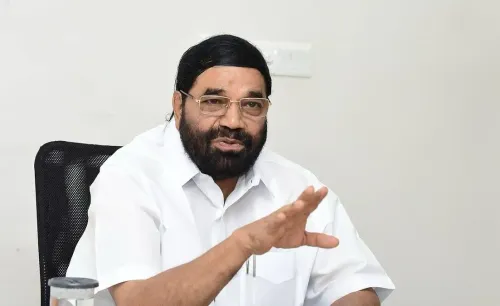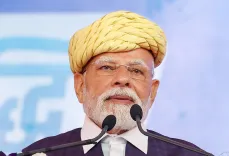Has the Kerala HC Blocked Lakshadweep's Order to Remove Mahal and Arabic from School Curriculum?

Synopsis
Key Takeaways
- Kochi High Court stays removal of Mahal and Arabic.
- Emphasis on cultural significance in education.
- Protests erupted following the administration’s order.
- Public interest litigation highlights minority rights.
- Future studies and consultations are permitted.
Kochi, June 10 (NationPress) The Kerala High Court has put a hold on the Lakshadweep administration's recent decision to eliminate Mahal and Arabic from the educational curriculum in the Union Territory.
The division bench, led by Chief Justice Nitin Jamdar and Justice Basant Balaji, has suspended the administration's order.
The Court noted, "The concern raised by the Petitioner, which we find credible at first glance, is that the implementation of the (National Education) Policy in a given region requires careful consideration and assessment of local conditions to determine what best serves the educational interests of the community, ensuring the policy's objectives are met. The Policy itself acknowledges the necessity for such deliberation, recognizing that various factors are involved in the decision-making process. As argued by the Petitioner's counsel, a language carries profound cultural significance, and any alterations could lead to significant consequences," the Court stated.
Furthermore, the Court remarked, "Typically, the judiciary refrains from interfering in educational policy matters, especially concerning language selection in curricula. However, this restraint is based on the understanding that education policy decisions are made by experts following extensive research and broad consultation," the Bench added.
It is noteworthy that on May 14th, the Education Department of the Union Territory issued an order to remove the two languages in accordance with the 2023 National Curriculum Framework (NCF), which is part of the 2020 National Education Policy (NEP).
The order mandates that all schools in Minicoy island will teach Malayalam and English as the primary and secondary languages, while Hindi will replace the local languages, Mahal and Arabic, as the tertiary language.
This sparked considerable protests across the islands.
A public interest litigation (PIL) was filed against this order by Ajas Akber, a social worker and the President of the Lakshadweep Unit of the National Students Union of India.
The petitioner emphasized that Mahal is the unique language of the Minicoy islanders and represents their heritage and culture.
He further pointed out that Mahal was only taught in the primary grades and served as a foundational course to preserve and promote the tradition and culture of Minicoy, a linguistic minority within the Union Territory.
Akber also noted that by eliminating Mahal from the curriculum, the Lakshadweep administration directly challenges the constitutional rights of a minority community with distinct traditions and culture.
After considering both parties, the Court stayed the order pending the PIL and allowed the Lakshadweep Administration to conduct appropriate studies on the matter.
"The Union Territory is permitted to conduct a study on local conditions concerning current Education Policies and to engage with all stakeholders via a meaningful consultation process (not merely for the sake of record). If these studies and consultations are conducted, the Respondents may apply for appropriate orders, and such applications will be assessed on their own merits," the Court's order stated.









